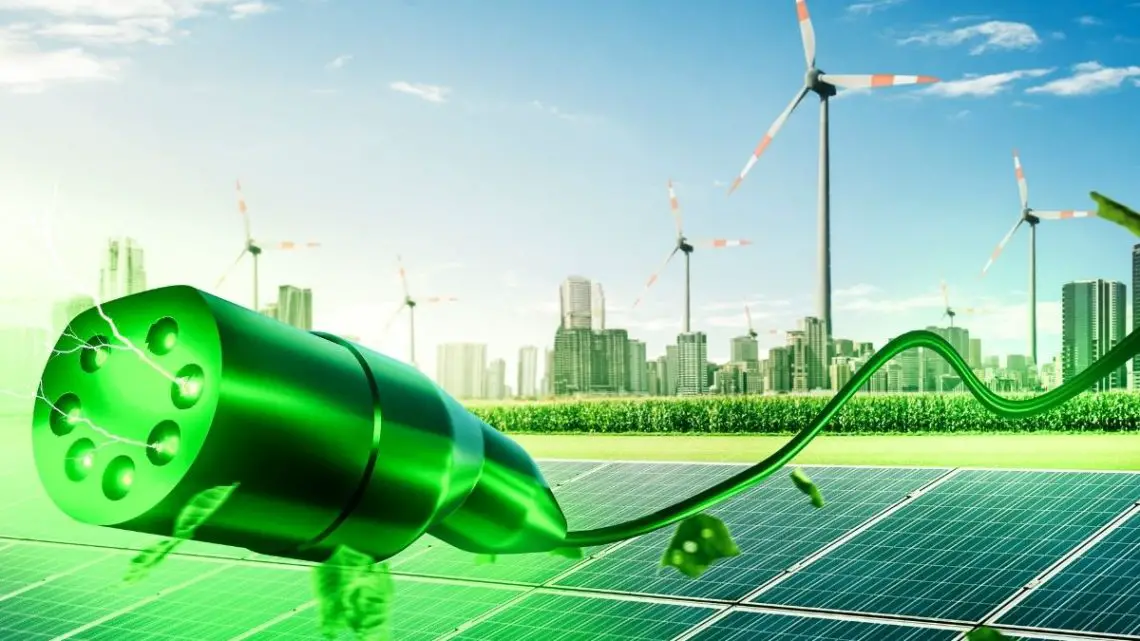
Renewable Energy Source: Types, Benefits, And Challenges
April 29, 2022The use of renewable energy sources as an alternative to the current energy sources has been on everyone’s mind. In fact, it is one of the topics of discussion that most people are passionate about.
We are in 2022; renewable energy has never been this hot topic. Many governments, corporations, businesses, and individuals have started to wake up to the need for renewable energy.
But, how do we define clean energy? Or how should we look at the future of renewable sources of energy? Let’s find out.
Why Is Renewable Energy Important For Our Future
We have already done irreversible damage to mother nature. But, we can still stop and stop any future damage. And to stop that, we must stop any further temperature increases, reduce the emission of harmful gases, and stop deforestation.
One key to ensuring on an individual level is to see how we are obtaining and using the energy. You will be surprised to know that the UK alone generates almost 6 tons of carbon dioxide per year. And most of the carbon dioxide comes from how the UK heats its houses.
While the amount of carbon dioxide generated in the UK is huge, the UK is not the only country. Combining all the carbon dioxide released in the atmosphere can relate it to the increasing global temperature.
In addition, the resources used to generate energy for our daily uses are limited. That means, one day, we will not have anything to generate energy.
This is where we need renewable energy sources. Renewable energy sources are natural sources that will never deplete. Therefore, renewable energy options are extremely promising, not only in the clean energy they produce but also in what they can do for the local economies.

What Are The Different Types Of Renewable Energy Sources?
Simply put, renewable energy sources can help you generate electricity without getting depleted. The energy resources we are talking about here are Wind, Sun, Water, Geothermal, and Biological matter.
Compared to traditional energy sources like Fossil fuel and crude-oil-based petroleum, renewable sources of energy are more clean, sustainable, and have 0% carbon dioxide emission.
There are various types of renewable energy sources available that can be used based on their geographical location.
1. Solar Energy
Solar energy is generated from the sun’s light and heat. It is the most common form of renewable energy harnessed through solar panels and photovoltaic cells.
Solar cells are arranged from edge to edge to capture sunlight in a photovoltaic power station. The cells of a solar cell are created using semiconductor material.
When sun rays fall on the cells, they lose electrons. These loose electrons flow through the cell, generating electricity.
Pros
- Lowers your power consumption.
- Environmentally friendly.
- Sustainable.
- Benefits the electricity grid.
- Makes us more energy independent.
Cons
- It will not work at night.
- Expensive initial investment.
2. Wind Energy
Human beings have been harnessing wind energy for hundreds of years. They have been using wind energy from traveling to producing food. But today, we capture wind energy for a different reason – To power homes and businesses.
If you have ever been through a massive grass field, you have probably seen wind turbines spinning on the horizon. These giant bladed towers are personifications of the old-school windmills. Although they use the same principle, the purpose is different.
Wind turbines use the wind to generate kinetic energy. This kinetic energy is then converted into electrical energy.
Pros
- Clean source of energy.
- Low operating cost.
- Efficient use of landscape.
- Clean source of energy.
Cons
- Need a windy location.
- High initial development cost.
3. Geothermal Energy
Geothermal energy is a type of energy taken from the Earth’s core. It is the heat that comes out from the subsurface of the Earth. The energy is contained within the molten rocks and fluid beneath the Earth’s crust.
To produce power from the thermal energy, wells are dug a mile deep underground reservoir to access the hot water and steam. This steam can be used to power turbines and generate electricity.
Pros
- Reliable source of power.
- Usable for large and small-scale installation.
- Small land footprint.
Cons
- Location dependent.
- High initial development cost.
4. Hydroelectric Energy
Hydroelectric power is a renewable source of energy that generates power from moving water. Hydropower relies on endless recharging of water to sustain the constant power supply.
Although there are other renewable sources of energy, hydroelectric power is so large and widely used that it is called White Coal for its power and availability.
Pros
- Reliable form of energy.
- Safer to use.
- Low carbon dioxide emission.
Cons
- Drought potential.
- Limited reserve.
5. Biomass Energy
Biomass has been in use since people learn to burn wood to cook their food. Wood is still the largest biomass energy today.
Other sources of biomass include food crops, woody plants, oil-rich algae, residue, and other organic components of municipal and industrial wastes.
While there are so many sources to harness biomass energy, there are only two major sources to generate electricity – Burning & Decomposition.
Depending on what type of organic waste is used, it is either burned or decomposed to produce heat and methane gas.
The heat can be used to boil the water and generate steam. This steam can then be used to power turbines to generate electricity.
Pros
- Readily available in many forms.
- Less expensive compared to fossil fuels.
- Reduce garbage load in landfills.
- Help mitigate the effect of climate change.
Cons
- Support deforestation.
- The operational cost of biomass is expensive.
Benefits Of Using Renewable Energy Source
The energy that comes from natural and inexhaustible sources is renewable energy sources. For instance, Sun, wind, water, plants, and Earth can be considered renewable sources.
While we know that renewable sources of energy are clean, let’s explore a few more benefits.
- Generate No Emissions: Generating electricity from fossil fuels releases greenhouse gases. The greenhouse gases include methane, nitrous oxide, carbon dioxide, and fluorinated gases. However, that is not the case for renewable energy sources. Renewable energy sources use natural sources of energy and convert them into power.
- Resources Do Not Exhaust: One of the major problems with non-renewable sources of energy is that they will eventually exhaust themselves. But with renewable sources of energy, they are inexhaustible. This gives us the opportunity to create a sustainable energy system without risking the future of the next generation.
- Reduce Economic Uncertainty: Unlike energy generation from fossil fuel, where the price keeps on changing, the production cost of renewable sources of energy is plannable. In addition, renewable sources of energy can be found in any part of the planet, which gives every nation an opportunity to attain energy independence.
Renewable Energy: Global Challenges
Renewable energy is considered energy derived from natural resources. Recently an influential entity has started prioritizing renewable energy sources.
Renewable energy sources are set to be the fastest-growing source of electricity in the next five years. However, the diversification of the energy sources creates many challenges for existing infrastructure and systems.
The challenges Renewable Energy faces
- Power Quality Issues
We are living in a world where almost everything requires electricity to perform. Even a single minute of outage can result in the loss of millions for businesses. However, with the renewable source of energy, you can’t be certain about consistency and high power quality. Poor quality problems include frequency, current harmonics, voltage variations, and transmission line transits.
- Availability Of Power
One of the biggest concerns for experts in the field of renewable energy resources is that power generation can’t be controlled. For instance, solar-powered electricity is generated only when there is sunshine outside; wind energy depends on the availability of wind in the area. This uncertainty in renewable energy production is making the whole process complex.
- Information Barrier
While this area is improving, people still lack the necessary information and need for renewable energy sources. Nevertheless, investment and capital investment have been made available for the implementation. It is just that the government needs to be a little proactive in assisting and advising applications.
- Locations
Most renewable energy plants need large areas to set up. That means renewable sources of energy are dictated by location, which can be turned off to users. Then there are some renewable energy sources that are not available in different regions. For instance, you can set up
- Cost
Though the energy you get from the natural resources is free, the initial cost of setting up the whole development is a major hurdle. In addition, the storage system of the generated energy is expensive and poses a real challenge to convert them into megawatt production.

Can 100% Renewable Energy Power The World?
Renewable sources of energy can be used anywhere. For example, buildings can be heated and cooled with biomass boilers; water can be heated with solar thermal heaters. In addition, inverters can be charged with natural energy sources like wind and water thermal heat.
Even the transportation industry can use clean energy to power their vehicles. In addition, renewable sources of energy can be used to generate electricity and produce electro-fuels like hydrogen. The possibilities are endless.
Believe it or not, we have the potential to create a world where renewable energy is the only energy source powering the entire Earth.
And the sooner we do, the better!



 With over 15 years of reporting hydrogen news, we are your premier source for the latest updates and insights in hydrogen and renewable energy.
With over 15 years of reporting hydrogen news, we are your premier source for the latest updates and insights in hydrogen and renewable energy.